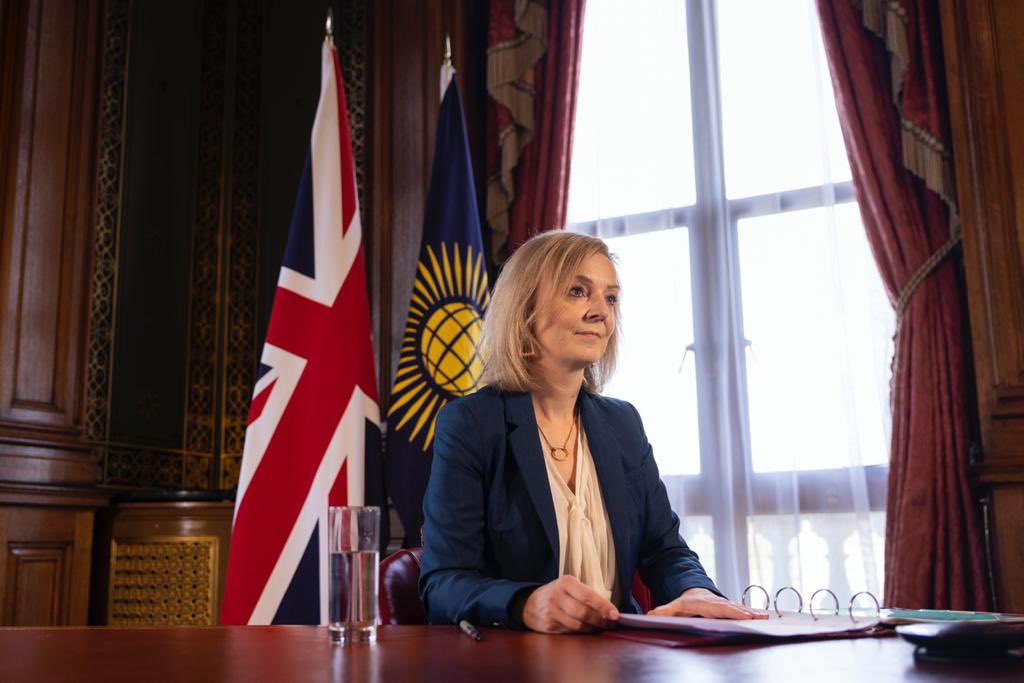
The Byline Times has revealed that former British Prime Minister, Liz Truss, had proposed resettling a group of Tamil refugees stranded on Diego Garcia due to concerns of “mass suicide”.
Court documents reveal that Truss had warned the government that it currently runs the risk of failing in its duty of care for the group, which included at least 20 children. These sixty-one individuals, including 15 children, had been stranded on the island for two years after being rescued by the Royal Navy when their leaking fishing vessel was on the brink of capsizing.
According to Foreign Office memos from last March, Truss had raised concerns over a mass suicide among the stranded families, who had gone on a hunger strike to protest their detention on the military base for months, with no prospect of lodging asylum claims.
In court documents related to the recent ruling by the Supreme Court of British Indian Ocean Territory in London, the former Prime Minister is quoted as saying that the group had "made a credible threat of mass suicide, having been advised by the Commander of the British Forces on BIOT (British Indian Ocean Territory) of the proposed next steps in considering their status." However, she also acknowledged "severe limitations to the mitigation measures which can be implemented on BIOT given the lack of facilities." Truss concluded that "processing the group in the UK represents the only option" and warned of a "failure of duty of care to the migrants themselves."
Despite her recommendation, Liz Truss's decision was never implemented. The Foreign, Commonwealth and Development Office has declined to explain why no action was taken or when the policy was changed.
Since Liz Truss was replaced as Foreign Secretary, the UK government has been attempting to return the Tamil refugees to Sri Lanka. However, last week, the government conceded that it could not forcibly remove any of the refugees from the British island territory. As a result, the government agreed to withdraw all asylum decisions due to acknowledged flaws in the process and has decided to appoint independent immigration experts to reconsider the applications.
A spokesperson from the Foreign, Commonwealth and Development Office (FCDO) stated, "The welfare and safety of migrants on the British Indian Ocean Territory is paramount, and we are working tirelessly with the BIOT Administration to find a long-term solution to their current situation. The BIOT Administration is considering migrants' protection claims under BIOT law and in line with our international legal obligations to ensure no migrant is at risk of persecution on return to their country of origin, and continues to provide them with extensive medical and welfare support”.
Amid serious concerns about the mental health of the stranded refugees, the United Nations High Commissioner for Refugees (UNHCR) is reportedly preparing to visit the camp where they are held next month to inspect the conditions. A UNHCR spokesperson stated, "We remain concerned and hopeful to assess the situation, and a visit to review the conditions is still under discussion”.
Read the full story here.
